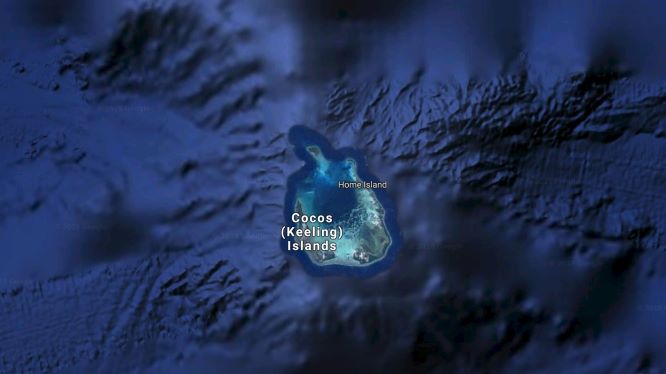

Once touted as Australia’s untouched natural paradise, The Cocos (Keeling) Islands are a remote territory of Australia in the Indian Ocean. Its 2 coral atolls comprise 27 tiny islands with white-sand beaches, palm trees and lagoons and has tourism as a primary source of income. With only 600 inhabitants, these islands were found to be littered by 414 million pieces of plastic.
These shocking figures are a result of the calculation of a paper published in Scientific Reports on Thursday. The large plastic buildup, weighing a hefty 238 tonnes, included about 25 percent single-use or disposable plastics — packaging, drink bottles, straws, plastic cutlery, bags, toothbrushes — and shoes.
The huge amount of debris found in the archipelago is symbolic of plastic waste being circulated in the world’s oceans. The study led by IMAS researcher Dr Jennifer Lavers says,” Plastic pollution is now ubiquitous in our oceans, and remote islands are an ideal place to get an objective view of the volume of plastic debris now circling the globe.”
[related_post]
The remote islands which don’t have large human populations depositing rubbish nearby are an indicator of the amount of plastic debris circulating in the world’s oceans.
“Our estimate of 414 million pieces weighing 238 tonnes on Cocos (Keeling) is conservative, as we only sampled down to a depth of 10 centimeters and couldn’t access some beaches that are known debris ‘hotspots’,” she added.
Of the 414 million pieces of plastic pollutants, an estimated 384 million waste was found buried up to 10 centimetres under the surface. About 60 percent of this comprised of micro-debris that were 2–5 millimetre in size, and could pose significant challenges to wildlife and biodiversity.
Besides single-use plastics, the team also found an estimated 373,000 toothbrushes and 977,000 shoes, equivalent to what the island community would produce as waste in about 4,000 years, the study noted.
According to the United Nations, every year, over eight million tonnes of plastic ends up in the oceans, accounting for up to 80 percent of all litter in the oceans, which is wreaking havoc for marine life.
A recent exploration to the deepest place in the ocean — the Pacific Ocean’s Mariana Trench — by American explorer Victor Vescovo revealed plastic waste such as bag and sweet wrappers along with new sea creatures, BBC reported.
The plastic survey on the beaches of Cocos (Keeling) Islands was assisted by Sea Shepherd’s Marine Debris program, the Tangaroa Blue Foundation and the Two Hands Project.
1. The mandate for blending Compressed Biogas (CBG) with natural gas has come into effect…
Andhra Pradesh is striving towards greening its energy sector with quite some speed. In a…
With an objective to bolster India’s green energy goals, a Tripartite Agreement has been signed…
The Union MNRE Minister Pralhad Joshi launched the Green Hydrogen Certification Scheme of India (GHCI)…
India’s energy conglomerate Bharat Petroleum Corporation Limited (BPCL) has commissioned a 5MW green hydrogen plant…
In a historical development, the European Space Agency (ESA) has successfully launched its pioneering ‘Biomass’…